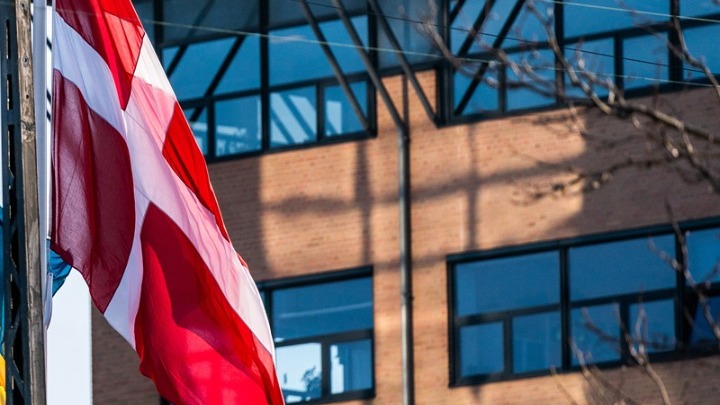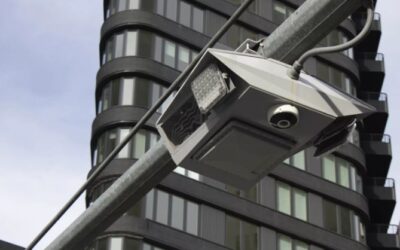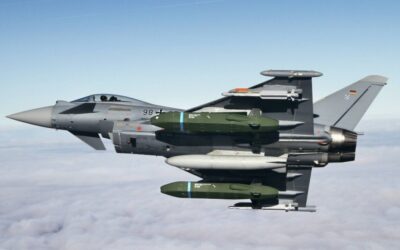Syria’s new leaders have appointed Murhaf Abu Kasra, a prominent figure among rebels who ousted Bashar al-Assad, as…

Three months after Russia’s invasion of Ukraine, a majority of Danes, almost 67%, voted in favor of joining the EU’s common defence policy the day before yesterday, according to the nearly complete counting.
The “yes” victory in the referendum held in Denmark is recorded after the submission of Finland’s and Sweden’s requests to join NATO, as the armed conflict in Ukraine pushes many European countries to drastically change their defence policy.
“Tonight, Denmark sent an important message to our allies in Europe, to NATO and Putin. We have shown that when Putin invades a free country and threatens stability in Europe, we others pull together,” she told supporters. “There was a Europe before February 24, before the Russian invasion, and there is another Europe after,” she added.
The opposition Conservative leader, Seren Pipe, for his part, told parliament after the first exit polls were published that “everything points to the fact that after thirty years, the Danes decided today that we must abandon the ‘opt-out’ (our exemption) in terms of defence and we need to work more closely with Europe.”
European Commission President, Ursula von der Leyen, and European Council President, Charles Michel, praised Denmark’s vote’s “historic” result.
“I welcome the strong message of commitment to our common security sent by the people of Denmark,” the Commissioner said on Twitter, “convinced that Denmark and the EU will both benefit from this decision. The people of Denmark have made a historic choice,” said the head of the European Council.
A Member-State since 1973, Denmark first expressed its Euroscepticism in 1992, rejecting (50.7%) the Maastricht Treaty, something unprecedented at the time.
To break the deadlock – which threatened the implementation of the founding treaty across the European Union – Copenhagen secured a series of exemptions, “opt-outs” as they are called in Brussels, and the country finally said yes the following year.
Since then, Denmark has decided not to join the euro – rejected in the 2000 referendum – or the European policy on home affairs and justice – rejected in the 2015 referendum – as well as on defence.
As a result of this latest decision, the Nordic country, a founding member of NATO, has not participated in any joint EU military missions. Once considered marginal, the 27 nation common defence policy has gained momentum in recent years, although the idea of a eurozone continues to meet resistance in several capitals.
Two weeks after Russia’s invasion of Ukraine, the Danish Prime Minister announced that she had reached an agreement with most parties in parliament to put the referendum to end the “opt-outs” as well as to invest heavily in defence to increase the level of 2% of GDP for military spending that NATO wants.
Eleven of the 14 parties, which occupy three-quarters of the seats in parliament, called on their supporters to vote in favor. Two factions of the Eurosceptic far-right, the Danish People’s Party and the New Conservatives, voted against. The radical left-wing Unity List also opposed joining the EU’s common defence policy.
Following the requests of Sweden and Finland for NATO membership, the three Nordic countries will soon join the European Common Defence Policy and the Atlantic Alliance.
The referendum did not concern the autonomous regions of Denmark, nor Greenland – which remains outside the EU – nor the Faroe Islands.
Source: APA MPA
Also read: NATO | “We have the right to deploy forces in Eastern Europe” – Russia has repealed Founding Act
READ MORE
Red Sea | A US Fighter Jet was Shot Down by Friendly Fire
A US fighter jet was shot down by friendly fire over the Red Sea on Sunday, as announced by the headquarters of the US armed…
Syria | Asaad Hassan Al-Shibani Appointed as the New Minister of Foreign Affairs
Syria’s new leaders have appointed a foreign minister, the official Syrian news agency SANA reported, as they seek to…
Greece | PDPA’s “yes” to Placing Police Cameras on the Streets
The Personal Data Protection Authority gave the green light to the Hellenic Police’s placement of cameras on the streets to prevent and…
MBDA | Modernising TAURUS Missiles for the Bundeswehr
The Bundeswehr and TAURUS Systems GmbH (a joint venture between MBDA and SAAB) have signed a contract for the maintenance and…
Syria | New Minister of Defence Murhaf Abu Kasra
Syria’s new leaders have appointed Murhaf Abu Kasra, a prominent figure among rebels who ousted Bashar al-Assad, as…
Turkey – Spain | Memorandum of Cooperation for the Development of Turkish Hurjet Training Aircraft
Turkey and Spain have signed a Memorandum of Understanding (MoU) to develop Turkish-made Hurjet trainer-light fighter aircraft.
Red Sea | A US Fighter Jet was Shot Down by Friendly Fire
A US fighter jet was shot down by friendly fire over the Red Sea on Sunday, as announced by the headquarters of the US armed…
Northrop Grumman | Winner of the US Navy’s Next E-130J Aircraft Development Program
Northrop Grumman won the $3.5 billion contract for the US Navy’s E-130J nuclear command, control, and communications (NC3)…




















